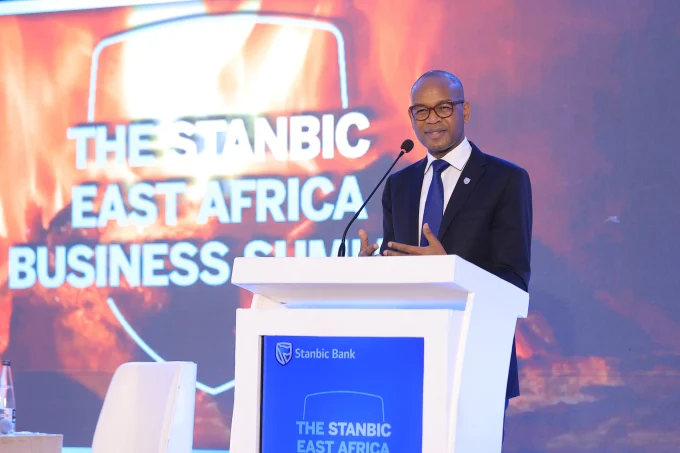Sustained revenue growth and prudent cost management helped raise KCB Group PLC full year 2018 net profit by 22% to a record Ksh 24 billion.
In the results announced on Wednesday, the Group profit after tax for the 12 months ending December 2018 rose from Ksh 19.7 billion reported a year earlier.
This was on the back of solid operating income of Ksh 71.8 billion—largely from interest income, fees and commissions— and lower costs which reduced 1% to Ksh 34.7 billion during the period, said the KCB Group Chief Executive Officer and Managing Director Joshua Oigara.
“Our focus on customers, as well as our diversified business model and strong risk discipline helped us to produce another solid year of financial performance in 2018, even as we navigated the pressures of interest rates cap in Kenya and economic volatility in some of our subsidiaries,” said Oigara.
“The Group’s performance is a reflection and outcome of our growth strategy, maximizing on our strengths, agility into emerging opportunities and the inherent potential to drive value creation for the shareholders and the communities in the markets we operate in,” he said.
The KCB Group Board has proposed a final dividend of Ksh 2.50 per share to be presented to shareholders in the Annual General Meeting. If approved, this will bring the total dividend to Ksh 3.50 per share, an increase of 16.7% over prior year dividend per share.
During the year, the Group deepened its focus on driving innovation, developing new digital solutions and tapping data and advanced analytics to meet the fast changing consumer expectations and simplify the customer journey. This digital transformation— which is meant to boost non-funded income— saw the bank deploy a fintech platform that will host our mobile/fintech products and services.
In September 2018, KCB migrated KCB M-PESA to the new platform, effectively guaranteeing more stability, reliability and enhanced transaction speeds, culminating to an improved customer experience.
“We see this platform as an enabler in supporting transactional banking and credit access in a seamless manner as we strategically position the bank to partner and collaborate with global payments providers and telecommunications firms to tap into the digital banking,” said Oigara.
Total loans disbursed on mobile were up 84% to Ksh 54.4 billion propelled by this installed capacity of our digital banking platform, effectively tripling monthly loan disbursements.
On the balance sheet position, the Group maintained its market leadership status as the biggest financial institution in East Africa. Assets surged 10% to Ksh 714.3 billion, driven by net loans and advances, which were up 8% to Ksh 455.9 billion.
Looking at the funding side, deposits hit Ksh 537.5 billion while long term funding stood at Ksh 22.4 billion from the previous period’s Ksh 14.9 billion.
According to the financials, KCB Group strengthened its capital base—within both internal and regulatory limits— which is central to business growth in the coming years. The Group’s core capital as a proportion of its total risk weighted assets closed the period at 18.1% against the Central Bank of Kenya statutory minimum of 10.5%. Total capital to risk-weighted assets stood at 19.5% against a regulatory minimum of 14.5%.
Going into 2019, the Group is expecting to continue on the growth trajectory as it takes up a greater role in driving East Africa’s growth agenda through credit extension in the personal/household sector, agriculture, healthcare, manufacturing and housing.
“Looking ahead, we expect our performance in 2019 to be driven by renewed investor confidence and rebound in the East Africa economy. The banking sector is expected to grow in tandem with the broader market and therefore, we are optimistic we will maintain our growth this year,” said Oigara.
Read: The rich get richer as new report shows 125 Kenyans worth over Ksh 30 billion
“Our focus as a Group goes beyond financial returns. The Bank has given due attention to the social and environmental pillars of development. The bank will continue lending responsibly, reducing our carbon foot print, mainstream the Sustainable Development Goals (SDGs) and playing a leading role as one of the regional anchors of the UNEP’s Finance Initiative Principles on Responsible Banking,” he added.













3 Comments